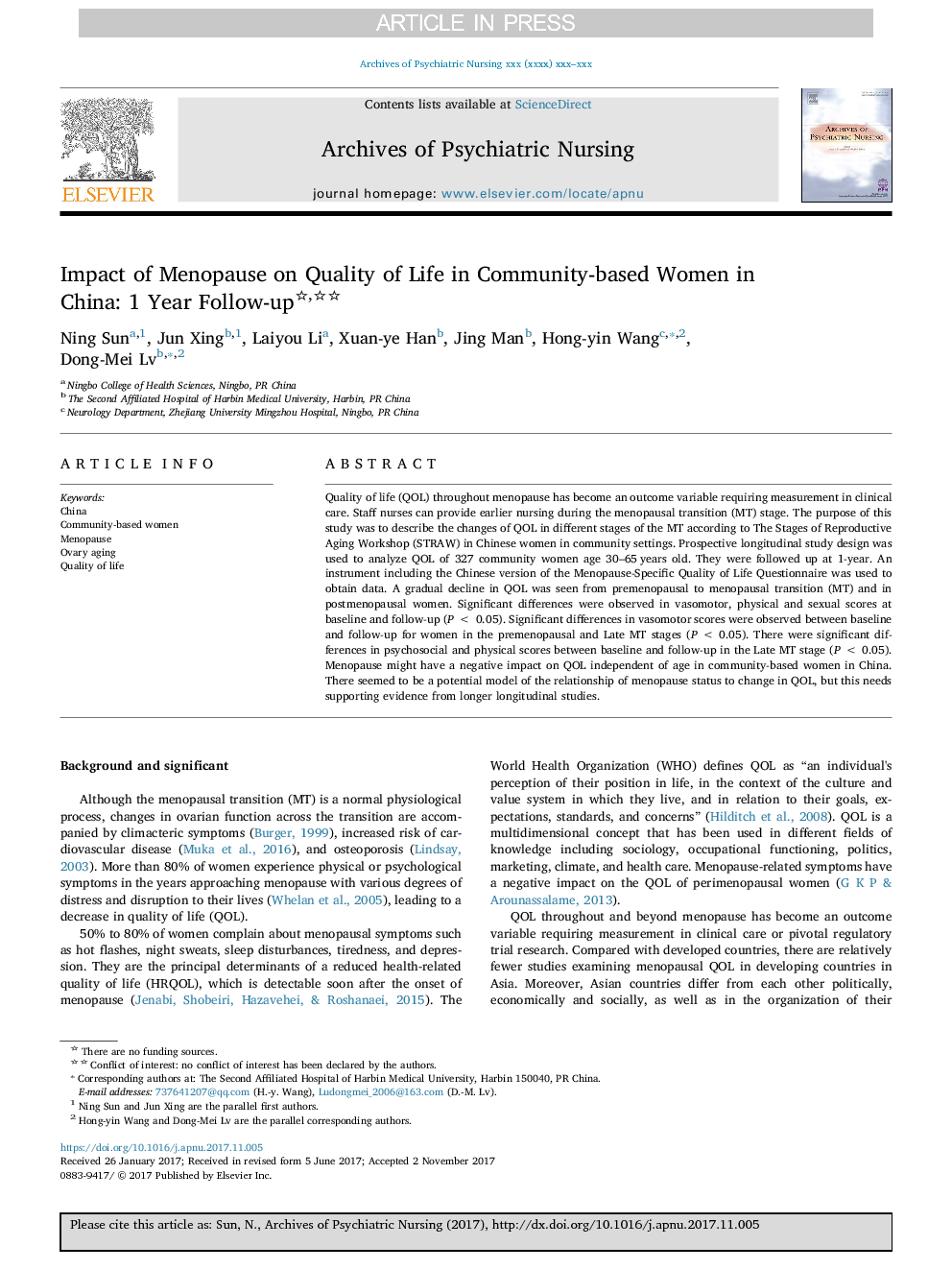ترجمه فارسی عنوان مقاله
تاثیر یائسگی بر کیفیت زندگی زنان مبتنی بر جامعه در چین: پیگیری 1 ساله
عنوان انگلیسی
Impact of Menopause on Quality of Life in Community-based Women in China: 1 Year Follow-up
| کد مقاله | سال انتشار | تعداد صفحات مقاله انگلیسی |
|---|---|---|
| 132159 | 2018 | 5 صفحه PDF |
منبع

Publisher : Elsevier - Science Direct (الزویر - ساینس دایرکت)
Journal : Archives of Psychiatric Nursing, Volume 32, Issue 2, April 2018, Pages 224-228
ترجمه کلمات کلیدی
چین، زنان مبتنی بر جامعه، یائسگی، پیری تخمدان، کیفیت زندگی،
کلمات کلیدی انگلیسی
China; Community-based women; Menopause; Ovary aging; Quality of life;

